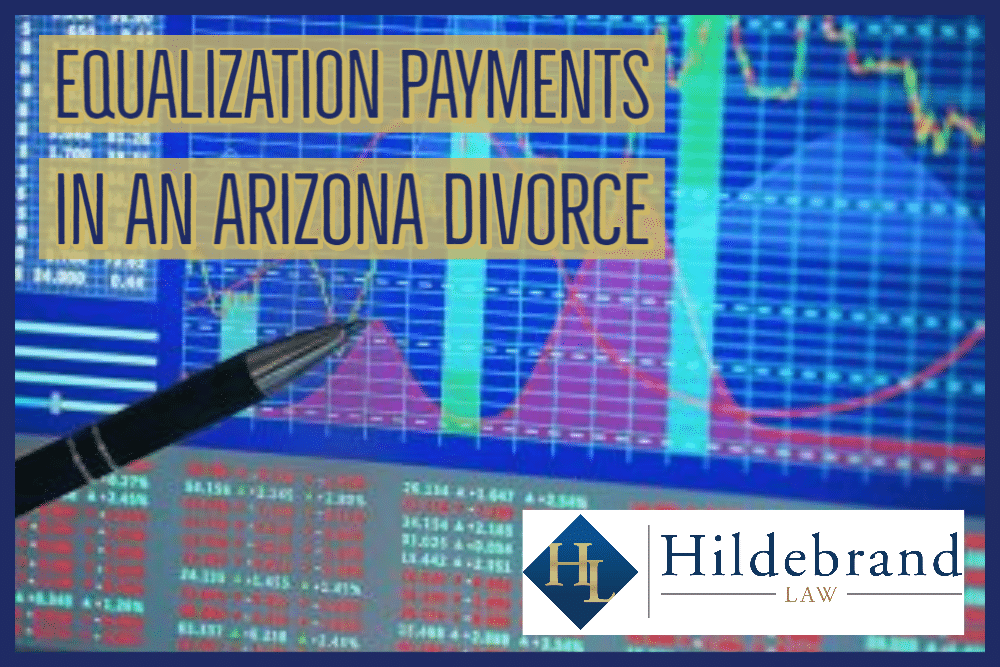Divorce can be a challenging time, filled with complex emotions and numerous legal terms that might seem confusing. One such term you might come across is “equalization payment.”
If you’re in the midst of a divorce or simply curious about how financial settlements work, understanding equalization payments is crucial. This concept could significantly impact your financial future, and knowing the ins and outs can give you a clearer picture of what’s ahead.
We’ll break down what equalization payment means in the context of divorce, why it matters, and how it could affect your assets. By the end, you’ll have a better grasp of this important financial element, empowering you to make informed decisions during a pivotal time in your life. Dive in to demystify the concept and gain peace of mind.
Equalization Payment Basics
Equalization payments help divide property fairly in a divorce. These payments balance the division of assets. One spouse might have more property. Equalization makes sure both spouses get equal value. If one person gets more, they pay the other person. This payment closes the gap between their total property values.
Spouses need to list all their assets. This includes homes, cars, and savings. Each item gets a value. The value helps calculate the payment. The goal is for both to leave the marriage with equal worth. Knowing how to divide property is important. It ensures fairness and peace after divorce.
Calculating Equalization Payments
Net Family Property is all the assets a person owns. It is calculated on a specific day. This day is called the Valuation Date. Everything a person has on this date is counted. Some items are not included. These are called Exclusions and Deductions.
Exclusions might include gifts or inheritances. Deductions can be debts owed. These are subtracted from the total value. The goal is to find the fair share for each person. Each spouse should get an equal amount. This is why it’s called an equalization payment.
Legal Framework
Equalization payments are part of divorce settlements. They help divide assets fairly. Different laws apply in each area. These laws guide how payments are calculated. Understanding these laws is important. It ensures fair treatment for both parties. Lawyers often help explain these rules. They make sure all parties follow the laws.
Divorce laws vary by location. Each place has its own rules. Some places may have strict rules. Others might be more flexible. This affects how equalization payments are decided. It’s important to know the rules in your area. This helps avoid surprises. Lawyers can help understand these differences. They provide guidance for each unique situation.
Role In Divorce Proceedings
Equalization payment helps divide assets during divorce. It ensures each person gets a fair share. This payment depends on property value and debts. Couples list everything they own. They also note what they owe. The aim is to balance these values. Each partner should get an equal net worth. This makes divorce more fair. It avoids fights over money. Lawyers may help create these agreements. They ensure both sides are happy. A well-made agreement leads to peace. It’s a key step in divorce.
Courts use equalization payments to settle disputes. Judges look at financial statements. They check what each spouse owns. Debts are also reviewed. Then, a fair amount is decided. Judges aim for equal value for each person. This decision is final and binding. It prevents future arguments. Courts ensure no one gets more or less than they deserve. Equalization creates fairness in legal decisions. Everyone walks away with what is rightfully theirs. This payment is crucial in divorce rulings.
Financial Implications
Equalization payments affect how you divide your assets. Each spouse gets their fair share. This is to ensure fairness. The goal is to balance both sides. Assets like homes and cars are included. This means both parties can start fresh. It is important to understand this process. Understanding helps reduce conflicts.
Tax rules can change with equalization payments. Some payments are taxable. Others are not. Knowing this can help you plan better. You might need a tax advisor. They can explain what you will owe. This helps in avoiding surprises later. Always check the latest tax laws. It is crucial to stay informed.

Challenges And Disputes
Couples often face disagreements over money matters during divorce. One partner might feel they deserve more. Another might think they are giving too much. These feelings lead to tension and arguments. Some argue over the value of shared property. Others dispute how debts should be split. Such disagreements can make the process difficult and slow.
There are ways to solve these disputes. Couples can talk to a mediator. Mediators help find fair solutions. Lawyers can give advice on legal matters. Sometimes, couples choose to negotiate directly. This requires patience and understanding. Courts can also decide if no agreement is reached. Each method has its pros and cons. What works best depends on the couple’s situation.
Practical Tips
Legal experts help with equalization payments during divorce. They know the laws well. Their advice is very important. They make sure everything is fair. Choose someone with experience. Look for good reviews. This helps you trust them. Ask them questions about your case. Make sure they explain clearly.
Gather all your financial documents. This includes bank statements. List all assets and debts. Check for any missing papers. Organize them neatly. This helps the process go faster. Keep copies for yourself. Make sure to update any changes. Share them with your legal expert. They need this information.


Frequently Asked Questions
What Is An Equalization Payment?
An equalization payment is a financial transfer between spouses during divorce. It aims to fairly divide marital assets and liabilities. The goal is to ensure both parties leave the marriage with equitable financial standing. This payment is determined by assessing the net worth of each spouse.
How Is Equalization Payment Calculated?
Equalization payment is calculated by determining the net family property of each spouse. This involves assessing assets and liabilities accumulated during the marriage. The difference between the two values is then equalized. The spouse with the higher net worth pays the other to balance the disparity.
Is Equalization Payment Mandatory In Divorce?
Equalization payment is mandatory in jurisdictions where marital assets must be divided equitably. It ensures fairness in the division of property. However, couples can reach mutual agreements outside court. Legal advice is recommended to understand specific obligations based on local laws.
Can Equalization Payment Be Negotiated?
Yes, equalization payment can be negotiated between spouses. Couples often reach agreements through mediation or collaborative divorce processes. Negotiation allows flexibility and can lead to a more amicable resolution. Legal guidance ensures that the agreement is fair and compliant with legal standards.
Conclusion
Equalization payments simplify property division during divorce. They ensure fairness. Each partner gets a fair share of assets. Understanding these payments helps avoid conflicts. It promotes smoother separations. Knowing your rights is crucial. Seek legal advice if needed. A lawyer can clarify your situation.
Remember, fair distribution benefits both parties. It supports a fresh start post-divorce. Keep communication open with your partner. This helps reach amicable agreements. Equalization payments are important in divorce settlements. They protect financial interests. Stay informed, stay prepared. Divorce is challenging, but fair solutions exist.


